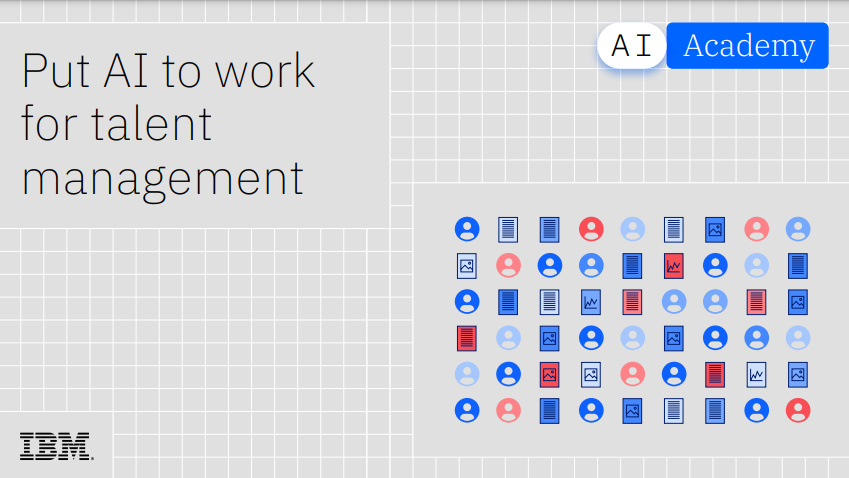What is a business intelligence analyst?
Find out how to become a business intelligence analyst, what the job involves, and the salary you can expect


It's one thing to have access to data, but it is another to know what to do with it. This is where a business intelligence (BI) analyst can help by teasing put the insight that enables a business to scale.
An example of just how BI can lead to growth can be taken from the rise of Amazon; it is said that founder and former chief Jeff Bezos had an interest in data long before he even created the e-commerce giant.
Though it was often framed as a 'customer obsession rather than an interest in data, the results were hard to ignore. Simply put, fact-driven business intelligence insights can lead to growth on a global scale. We can't put interest in data analytics and business intelligence down solely to Amazon, but there is certainly a great deal more interest in the field now than there was before the online retail giant exploded onto the web.
Putting skilled analysts into ambitious companies has proven to be a successful path to profitability and also a sound method of becoming compliant with current data laws.
That last point has become increasingly important since the implementation of the General Data Protection Regulation (GDPR) and the UK's own Data Protection Act 2018. Since the GDPR came into force in 2018, businesses have been under more scrutiny around the way they collect and retain data, with greater urgency on transparency and accountability.
These are just some of the ways a dedicated business intelligence analyst can help an organisation, SMB, startup or even a government. So if finding the patterns and insights from high volumes of data is your bag, business intelligence might just be your next career move
What does a business intelligence analyst do?
BI analysts spend a lot of their time analysing data in order to identify company weaknesses and formulate solutions to these problems. To do this, BI analysts are responsible for some of the following tasks:
Get the ITPro daily newsletter
Sign up today and you will receive a free copy of our Future Focus 2025 report - the leading guidance on AI, cybersecurity and other IT challenges as per 700+ senior executives
- Conducting tests to ensure that intelligence is consistent with defined goals
- Maintaining or updating BI tools and databases
- Understanding and communicating business requirements
- Developing BI and data warehouse strategies
- Analysing competitive market strategies through analysis of a related product, market, or share trends
- Presenting findings to all levels of management
BI analysts may also be responsible for competitor analysis, keeping up to date with industry trends, and exploring where their organisation can improve and reduce costs. Depending on the organisation involved, a BI analyst may be responsible for developing or researching a suitable business intelligence solution that is appropriate for the needs of the company.
What qualifications does a business intelligence analyst need?

An educational background in areas such as mathematics, computer science, or other technology subject is essential for this field and it's often required (or strongly preferred) that aspiring BI analysts obtain an undergraduate degree.
BI analysts should have training experience in various analytic processes, such as enterprise, SWOT, and PESTEL analysis, as well as have experience in technologies like SQL. It would also be beneficial for an aspiring BI analyst to be trained in areas such as management and scenario planning.
Whilst technically not necessary, it would be useful to get certified when participating in this field. The benefits of earning a certification include professional recognition, professional development opportunities, and an increased salary certified BI analysts see a 16% average increase. There are different programmes available with varying levels of certification, so it's important for a BI analyst to find one that closely aligns with their goals.
What skills should a business intelligence analyst have?
RELATED RESOURCE

Modernise the workforce experience
Actionable insights and an optimised experience for both IT and end users
FREE DOWNLOAD
With a role so heavily reliant on data, it will come as no surprise to hear that anyone wishing to pursue a career in data analysis will need a strong analytical mind and technical skills to understand the meaning of the information.
A BI analyst also needs to possess strong people and social skills as much of their work is communicating with clients and customers to share information and suggest how the data can be used to develop their business.
Team management and problem-solving are some other secondary skills you should probably consider if you’re applying for a role as a BI analyst. It’s safe to say that in this position you’ll probably work closely with other analysts on your teams as well as other parts of the organisation to help and advise key stakeholders with their decision-making.
How much does a business intelligence analyst get paid?
If you’re based in the UK, then business intelligence analysts can usually make an average salary of £31,849 per year. The good news is that you can also expect to receive a bonus anywhere between £763 and £4,000, which is what the compensation research website Payscale has found.
A business intelligence analyst’s salary is also likely to increase over time, depending on how much experience you have acquired. This is also boosted by the fact that businesses are constantly needing to analyse more and more data, making the role fairly valuable. At the bottom end, entry-level BI analysts usually make around £27,000 per year, and can expect around an extra £1,000 raise for every year of work. Once you’ve worked for around five years, the salary should hit £35,000, while after working for 10 years it plateaus slightly to £38,000. However, analysts who have been in the industry for some time and have at least 20 years of field experience can look forward to earning around £50,000 each year.
RELATED RESOURCE

Save time, money and protect your mid-market business with strategic workforce solutions
Effectively handle your technology needs with superior capabilities to secure, manage, and support business PCs
Since organisations are constantly having to sift through more and more data to improve their operations, the demand for these individuals is increasing. It could translate into greater premiums for specialist BI analysis skills, so it might be worth improving your data analysis skills to capture this reward in the future.
One thing that candidates should bear in mind when browsing openings for this role is to ensure that their future employer is able to offer them training opportunities. If you’re able to learn new skills and better yourself, it not only means that the company can benefit from your training but also helps you to be up-to-date with the ever-changing technology and data landscape.

Clare is the founder of Blue Cactus Digital, a digital marketing company that helps ethical and sustainability-focused businesses grow their customer base.
Prior to becoming a marketer, Clare was a journalist, working at a range of mobile device-focused outlets including Know Your Mobile before moving into freelance life.
As a freelance writer, she drew on her expertise in mobility to write features and guides for ITPro, as well as regularly writing news stories on a wide range of topics.
-
 Why keeping track of AI assistants can be a tricky business
Why keeping track of AI assistants can be a tricky businessColumn Making the most of AI assistants means understanding what they can do – and what the workforce wants from them
By Stephen Pritchard
-
 Nvidia braces for a $5.5 billion hit as tariffs reach the semiconductor industry
Nvidia braces for a $5.5 billion hit as tariffs reach the semiconductor industryNews The chipmaker says its H20 chips need a special license as its share price plummets
By Bobby Hellard
-
 Put AI to work for talent management
Put AI to work for talent managementWhitepaper Change the way we define jobs and the skills required to support business and employee needs
By ITPro
-
 Strengthening your data resilience strategy
Strengthening your data resilience strategywebinar Safeguard your digital assets
By ITPro
-
 Forrester: The Total Economic Impact™ Of IBM OpenPages
Forrester: The Total Economic Impact™ Of IBM OpenPageswhitepaper Cost savings and business benefits enabled by IBM OpenPages
By ITPro
-
 How data-driven decision-making can inform the channel
How data-driven decision-making can inform the channelIn-depth With continued global economic uncertainty, data-driven decision-making can align the channel with customer needs
By David Howell
-
 More than a number: Your risk score explained
More than a number: Your risk score explainedWhitepaper Understanding risk score calculations
By ITPro
-
 How Copenhagen Airport become a big data powerhouse
How Copenhagen Airport become a big data powerhouseCase Study Copenhagen Airport has become one of the most digitized airports in the world due to the deployment of a real-time data-management platform
By Peter Ray Allison
-
 What is Delta Lake in Databricks?
What is Delta Lake in Databricks?In-depth With Delta Lake version 3.0, Databricks has created a new universal format to resolve compatibility issues
By Keumars Afifi-Sabet
-
 How LaLiga championed big data to transform data analytics in sport
How LaLiga championed big data to transform data analytics in sportCase Study Spain’s premier football division is hoping to transform not just football but sport as a whole with its data analytics efforts
By Elliot Mulley-Goodbarne